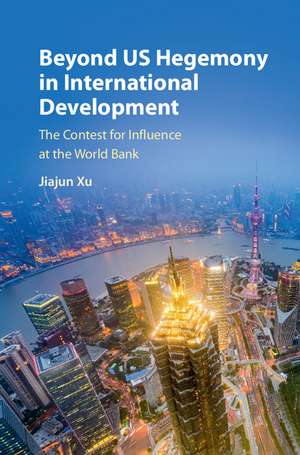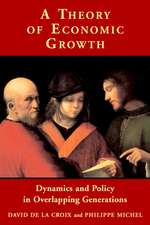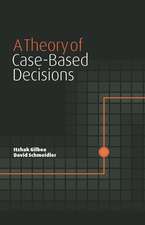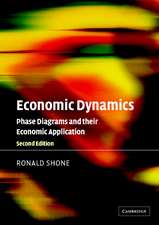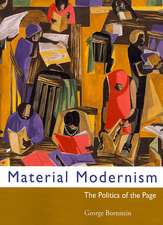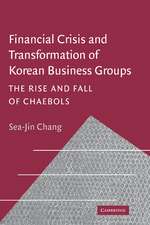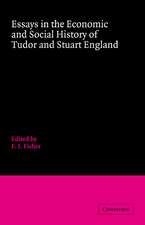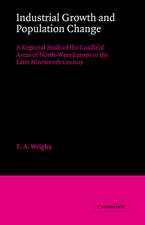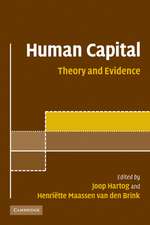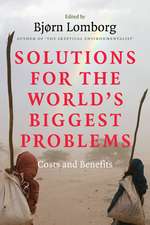Beyond US Hegemony in International Development: The Contest for Influence at the World Bank
Autor Jiajun Xuen Limba Engleză Hardback – 23 noi 2016
| Toate formatele și edițiile | Preț | Express |
|---|---|---|
| Paperback (1) | 286.89 lei 6-8 săpt. | |
| Cambridge University Press – 18 dec 2019 | 286.89 lei 6-8 săpt. | |
| Hardback (1) | 501.71 lei 6-8 săpt. | |
| Cambridge University Press – 23 noi 2016 | 501.71 lei 6-8 săpt. |
Preț: 501.71 lei
Preț vechi: 563.72 lei
-11% Nou
Puncte Express: 753
Preț estimativ în valută:
96.03€ • 104.35$ • 80.72£
96.03€ • 104.35$ • 80.72£
Carte tipărită la comandă
Livrare economică 21 aprilie-05 mai
Preluare comenzi: 021 569.72.76
Specificații
ISBN-13: 9781107172845
ISBN-10: 1107172845
Pagini: 322
Dimensiuni: 152 x 229 x 19 mm
Greutate: 0.6 kg
Editura: Cambridge University Press
Colecția Cambridge University Press
Locul publicării:New York, United States
ISBN-10: 1107172845
Pagini: 322
Dimensiuni: 152 x 229 x 19 mm
Greutate: 0.6 kg
Editura: Cambridge University Press
Colecția Cambridge University Press
Locul publicării:New York, United States
Cuprins
Introduction; 1. IDA burden-sharing: the unresolved puzzle; 2. Three power plays behind the politics of IDA burden-sharing; 3. IDA in the 1960s: hegemonic leadership amid bipolar geopolitics; 4. IDA in the 1970s: a turbulent era with accelerated burden-shifting; 5. IDA in the 1980s: the rise and retreat of the 'Reagan revolution'; 6. IDA in the 1990s: the struggle for power and fairness in a unipolar world; 7. IDA in the new millennium: leadership in transition?; 8. China's ascendancy: influence from within and impact from outside; Conclusion; Bibliography.
Recenzii
'Dr Xu, a pioneer of research on China´s role in global development finance, illuminates with in-depth empirical and institutional knowledge the changing power dynamics of multilateral development banking, a crucial step toward a new multipolar world order.' Helmut Reisen, Universität Basel, Switzerland, head of ShiftingWealth and former Director of the Organisation for Economic Co-operation and Developemt Center
'Jiajun Xu lifts the veil over the inner struggles among the donor community in funding the World Bank's emblematic aid window through the Cold War and after, and illuminates China's decision to launch new multilateral development finance institutions. A fundamental contribution to understanding the profound transitions in the US-led hegemonic international economic system.' Richard Carey, Chair, International Advisory Committee of the China International Development Research Network and former Director for Development Co-operation, Organisation for Economic Co-operation and Development
'In a dew drop can be seen all the colors of the rainbow', said a philosopher. In Jiajun Xu's book the World Bank and its soft-loan lending arm, the International Development Association (IDA), is the dew drop, and power in the inter-state system and the procedures intended to be the check on self-interested uses of power are the colors. Her analysis of the power-procedures interplay in IDA over decades is relevant across the field of international political economy.' Robert H. Wade, London School of Economics
'This is essential reading for international economists, aid professionals and others interested in how multilateral institutions function. Dr Xu's analysis of what happened in the World Bank can be applied to other institutions in an imperfect, insufficiently adaptable, global system. It explains why China found it necessary to create new institutions to complement its working within the framework of existing ones.' Percy Mistry, Chairman, Oxford International Associates Ltd
'Jiajun Xu lifts the veil over the inner struggles among the donor community in funding the World Bank's emblematic aid window through the Cold War and after, and illuminates China's decision to launch new multilateral development finance institutions. A fundamental contribution to understanding the profound transitions in the US-led hegemonic international economic system.' Richard Carey, Chair, International Advisory Committee of the China International Development Research Network and former Director for Development Co-operation, Organisation for Economic Co-operation and Development
'In a dew drop can be seen all the colors of the rainbow', said a philosopher. In Jiajun Xu's book the World Bank and its soft-loan lending arm, the International Development Association (IDA), is the dew drop, and power in the inter-state system and the procedures intended to be the check on self-interested uses of power are the colors. Her analysis of the power-procedures interplay in IDA over decades is relevant across the field of international political economy.' Robert H. Wade, London School of Economics
'This is essential reading for international economists, aid professionals and others interested in how multilateral institutions function. Dr Xu's analysis of what happened in the World Bank can be applied to other institutions in an imperfect, insufficiently adaptable, global system. It explains why China found it necessary to create new institutions to complement its working within the framework of existing ones.' Percy Mistry, Chairman, Oxford International Associates Ltd
Notă biografică
Descriere
This book provides essential background on China's bid for increasing influence over the US hegemonic architecture of international financial institutions.
